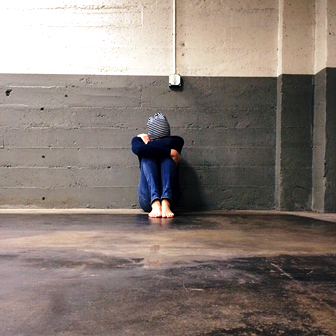When a child is being bullied, it should be taken seriously. After being bullied, a child may become more troubled at home or at school. Bullying does not only cause acute suffering but is also linked to long-term emotional problems. It is, however, possible to prevent the long-lasting effects of bullying by catching it early and intervening with help from teachers and staff. Children without strong parental support seem to experience the most lasting damage. What are the signs of bullying?
Signs to help you identify if your child is being bullied
1. Self-doubt
If your child speaks of running away or feeling helpless, be on the lookout, as this can be a sign that they are being bullied. Some children who experience such feelings may attempt to harm themselves or abuse substances.
Rarely do children let their parents know that they are being bullied?
2. Mood Changes
It is possible for the child to experience mood changes that may persist even after school is over. If you notice that your child is sad, or seems depressed for no reason, they may suffer from bullying.
If your child appears angry, agitated, or stressed, make it a point to speak to them about your observations, but be careful how you bring this up as you don’t want them to get defensive.
3. Chronic Diseases and Injuries
In the event that your child has recurring headaches, stomachaches, or other physical ailments, you may suspect that he or she is being bullied.
Cutting, bruising, and scratching are also warning signs.
4. Gradually Declining Grades and Attitude are also Warning Signs
If your child is being bullied, you will notice a change in their attitude towards school. Even before grades suffer, students may become less interested in schoolwork. He or she may complain about how much they hate school and may even beg to stay home.
Bullied children may also feel depressed.
They do not want to talk about what goes on at school. Avoiding school buses, bathroom facilities, or recess may be a sign that something is wrong.
5. Changes in Eating Habits
If your child is experiencing emotional distress as a result of bullying, you may observe changes in their eating habits, such as skipping meals or binge eating. A change in eating habits may be a sign of stress or bullying.
6. The loss of possessions
Children who are normally responsible start losing or having damage to their property and are unwilling to share how the damage occurred.
7. Problems with Sleeping
Bullying can also cause sleep problems due to its usually stressful nature. Pay attention to your child if he or she has trouble waking up or falling asleep in the morning. Sleep deprivation, nightmares, or bed-wetting in otherwise dry children can all be signs of bullying.
You may notice that your child suddenly stops using the computer or begins spending long hours on it after being cyberbullied. Cyberbullied children might appear mysterious or nervous about what they are doing on social networking sites or after sending a text message.
8. Changes in Socialization
During adolescence, friendships can change rapidly, but parents should watch for a recurring pattern of their teen starting to avoid social events, and not wanting to hang out with friends or family members.
9. Feelings of Helplessness or Low Self-Esteem

Self-destructive behaviors may include running away from home, harming themselves, or talking about harming themselves due to anxiety. Bullied children may feel helpless, even though they know that their parents may be able to help them, something stops them from telling their parents right away when the bullying starts.
10. A Feeling of Fear
Additionally, they may associate school with bullying. Your child may be afraid to go to school, walk to and from school, ride the bus, or participate in organized activities with peers if they have been bullied.
11. Bully’s Other Children
They may then take it out on their siblings or weaker friends, and become aggressive and uncooperative with their parents. Don’t be alarmed if your child becomes the bully, this is common for bullied children who themselves have been bullied.
12. Is Sad or Upset
When your child comes home, he or she may seem sad, moody, or depressed, but will most likely not talk about what is bothering them.
13. Device Obsession or Withdrawal
You may notice a change in your child’s screen time if they are being cyberbullied. Typically, one of two things occurs, excessive attachment to electronic devices or a complete withdrawal from them. When you try to limit their use, you may find that the child becomes agitated.
Before your child sets up their social media accounts, explain the rules and guidelines for online engagement.
Your kids need to know they will not lose their devices if they tell you about the possible cyberbullying they are experiencing. Make sure they know you are on their side and that you will protect them and help them solve any problems they might encounter
When you suspect that your child is being bullied and are ready to talk to them about it, be gentle in your approach and make them feel that it’s not their fault.
RELATED: The Long Term Effects of Bullying: Here is What you Need to Know
Some Gentle Questions you can Ask your Child:
- If you could ride the bus and have lunch with one student, who would it be?
- Show interest in their day.
- Who are their favorite classmates this year?
- Ask them who they like and who they don’t like and why
- Is anyone picking on or bullying them at school?
- Have they ever been teased by kids at school?
- Are there students who exclude them from school activities on purpose?
What To Do if Your Child is Being Bullied
When parents learn their child is being bullied, one common reaction is anger that this is happening to their child. Parents typically approach the school irately in an effort to resolve the problem. Maintaining calm is, however, crucial during this process.
Remember not to overreact. Assure your child that this isn’t their fault and that you’ll help them. Let them know you’re always available to them.
If you believe your child is being bullied, you should take swift action to stop it. Bullying can have serious repercussions on its victims.
Find out the policies for bullying at your school and district. Speak with your child’s or teen’s school. Set up a meeting with the teacher. The teachers of your child are likely to be the ones who know the most about how he or she interacts with other students at school.
The Following are Some Questions you can Ask the Teacher:
1. How well your child gets along with others in his or her class?
2. When he or she has free time, who spends time with him or her?
3. Ask the teacher if she has ever suspected that your child has been bullied by other students
If you do not feel comfortable talking to your child’s teacher, make an appointment to speak to the guidance counselor or principal. It would also be a good idea to ask for an emergency meeting if you feel your child’s safety is in danger. By doing so, you will be able to develop a plan that will ensure their safety during the investigation.
Ensure the Emotional Well-being of your Child in the Meantime
During the whole process, check in with your child regularly. Reassure your child that you believe in them. Maintain regular communication with them and closely monitor their behavior for unusual changes.
You should speak to a school counselor or psychologist about possible problems that may cause depression, social isolation, and loss of interest in school, even if you do not believe your child is being bullied. In the meantime, continue to spend 1:1 time with your child every day, play a game, walk or simply talk.
Final Thoughts
Signs of bullying; being bullied is a heartbreaking and miserable experience. It may be difficult for individuals who have not experienced being bullied, to realize how much bullying can hurt kids until they have been bullied themselves. Unfortunately, many people don’t realize that bullying can result in serious consequences and last a lifetime. Help stop bullying.




3 thoughts on “13 Signs Your Child is a Victim of Bullying”
Pingback: The Long Term Effects of Bullying: Here is What you Need to Know -
Thank you for your kind comment. The blog has been up for less than 4 months I would say. Thanks for stopping
Great, Thank you! come again